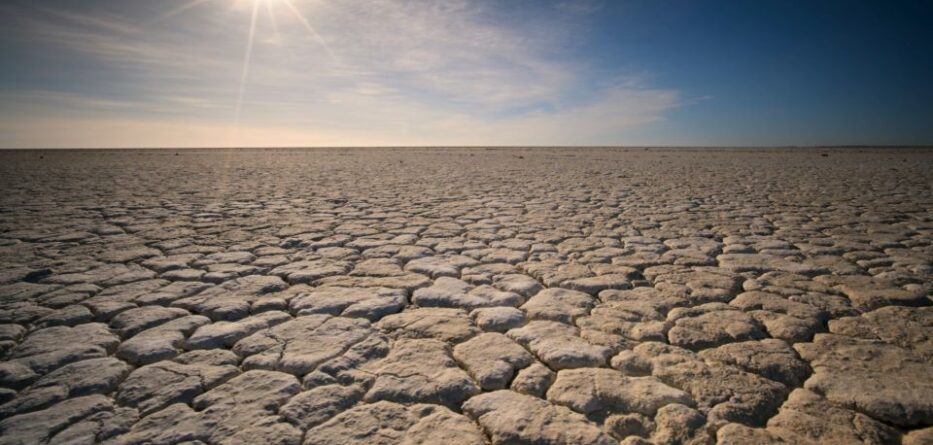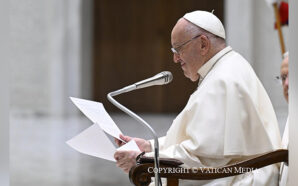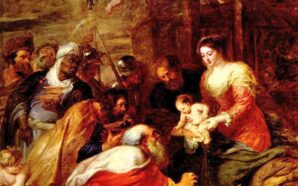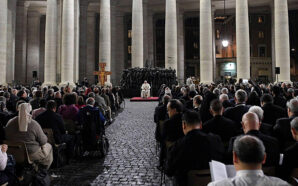27th Sunday in Ordinary Time
Eve of the Feast of St John Henry Newman
Service of Founders and Benefactors
Readings: Jeremiah 1:4-9; Psalm 79; 2 Timothy 4:1-5; John 15:9-17
In his book The Idea of a University, John Henry Newman, who lived in a very gendered society and in a very gendered church where women were seen and not heard, describes what it is to be a gentleman:
‘It is well to be a gentleman, it is well to have a cultivated intellect, a delicate taste, a candid, equitable, dispassionate mind, a noble and courteous bearing in the conduct of life; – these are the connatural qualities of a large knowledge; they are the objects of a University; …but…they are no guarantee for sanctity of life or even for conscientiousness, they may attach to the man of the world, to the profligate, to the heartless.’[1]
And then comes Newman’s arresting conclusion:
‘Quarry the granite rock with razors, or moor the vessel with a thread of silk; then may you hope with such keen and delicate instruments as human knowledge and human reason to contend against those giants, the passion and the pride of man.’[2] Knowledge and reason are just not enough. The challenge is dealing with the passion and pride of man.
Listen at https://soundcloud.com/frank-brennan-6/homily-81023
During the year, we were privileged to host Monsignor Roderick Strange from Oxford, a leading authority on Newman. He told us, ‘The gentleman, the product of a liberal education, as Newman perceived it, was not therefore a virtuous person or even necessarily a decent human being, although he ought to be.’
Strange recalls that ‘Newman once was lamenting in his Journal that “Catholics in England, from their very blindness, cannot see that they are blind”. He wanted to review the arguments they used and their position in relation to “the philosophy and character of the day,” in other words, its culture, “by giving them juster views”, that is, better arguments, “and by enlarging and refining their minds, in one word, by education”, and he declared that education, in that large sense of the word, had always been his line. Being educated mattered.’[3]
We are always trying to conquer the passion and pride of man, first in ourselves and then in others who exercise power which rebounds on others. We are always needing to educate first ourselves and then others in juster views. This week Pope Francis has issued his latest Apostolic Exhortation Laudate Deum. It is addressed to All People of Good Will on the Climate Crisis.
Francis starts with the facts, with the undoubted science:
‘It is no longer possible to doubt the human – “anthropic” – origin of climate change. Let us see why. The concentration of greenhouse gases in the atmosphere, which causes global warming, was stable until the nineteenth century, below 300 parts per million in volume. But in the middle of that century, in conjunction with industrial development, emissions began to increase. In the past fifty years, this increase has accelerated significantly… While I was writing Laudato Si’, they hit a historic high – 400 parts per million – until arriving at 423 parts per million in June 2023. More than 42% of total net emissions since the year 1850 were produced after 1990.
‘At the same time, we have confirmed that in the last fifty years the temperature has risen at an unprecedented speed, greater than any time over the past two thousand years. … At this rate, it is possible that in just ten years we will reach the recommended maximum global ceiling of 1.5°.’[4]
He then goes on to address the economics and politics of the crisis:
‘This situation has to do not only with physics or biology, but also with the economy and the way we conceive it. The mentality of maximum gain at minimal cost, disguised in terms of reasonableness, progress and illusory promises, makes impossible any sincere concern for our common home and any real preoccupation about assisting the poor and the needy discarded by our society.’[5]
He acknowledges that there is only so much each of us can do on our own. And he calls for renewed international solidarity:
‘I ask everyone to accompany this pilgrimage of reconciliation with the world that is our home and to help make it more beautiful, because that commitment has to do with our personal dignity and highest values. At the same time, I cannot deny that it is necessary to be honest and recognize that the most effective solutions will not come from individual efforts alone, but above all from major political decisions on the national and international level.
‘Nonetheless, every little bit helps… [W]hat is important is something less quantitative: the need to realize that there are no lasting changes without cultural changes, without a maturing of lifestyles and convictions within societies, and there are no cultural changes without personal changes.’[6]
Francis is not afraid to put the direct challenge to those of us privileged to live western lifestyles in societies which have benefitted from industrialisation for far longer than those who live in developing countries:
‘If we consider that emissions per individual in the United States are about two times greater than those of individuals living in China, and about seven times greater than the average of the poorest countries, we can state that a broad change in the irresponsible lifestyle connected with the Western model would have a significant long-term impact. As a result, along with indispensable political decisions, we would be making progress along the way to genuine care for one another.
‘“Praise God” is the title of this letter. For when human beings claim to take God’s place, they become their own worst enemies.’[7]
Given the enormity of the present crisis, this is no time for trying to quarry the granite rock with razors, or for attempting to moor the vessel with a thread of silk. In this climate crisis, we need more than ‘human knowledge and human reason to contend against those giants, the passion and the pride of man.’[8] We need to rediscover that ‘as part of the universe, [we are] called into being by one Father, all of us are linked by unseen bonds and together form a kind of universal family, a sublime communion which fills us with a sacred, affectionate and humble respect.’[9]
Let’s pray the prayer composed by Francis when he wrote Laudato Si’ eight years ago:
Father, we praise you with all your creatures.
They came forth from your all-powerful hand;
they are yours, filled with your presence and your tender love.
Praise be to you!
Son of God, Jesus,
through you all things were made.
You were formed in the womb of Mary our Mother,
you became part of this earth,
and you gazed upon this world with human eyes.
Today you are alive in every creature
in your risen glory.
Praise be to you!
Holy Spirit, by your light
you guide this world towards the Father’s love
and accompany creation as it groans in travail.
You also dwell in our hearts
and you inspire us to do what is good.
Praise be to you!
…..
God of love, show us our place in this world
as channels of your love
for all the creatures of this earth,
for not one of them is forgotten in your sight.
Enlighten those who possess power and money
that they may avoid the sin of indifference,
that they may love the common good,
advance the weak,
and care for this world in which we live.
The poor and the earth are crying out.
O Lord, seize us with your power and light,
help us to protect all life,
to prepare for a better future,
for the coming of your Kingdom
of justice, peace, love and beauty.
Praise be to you!
Amen.
Fr Frank Brennan SJ is the Rector of Newman College, Melbourne, and the former CEO of Catholic Social Services Australia (CSSA). He was appointed a peritus at the Fifth Plenary Council of the Australian Catholic Church. Fr Frank’s latest book is An Indigenous Voice to Parliament: Considering a Constitutional Bridge, Garratt Publishing, 2023.
[1] J H Newman, The Idea of a University, Longmans, Green & Co, London, 1912, pp. 120-1.
[2] Ibid, p. 121.
[3] Roderick Strange, ‘Newman: Holiness and Humanity’, Newman College, Melbourne, 24 August 2023
[4] Pope Francis, Laudato Deum, ##11-12, available at https://www.vatican.va/content/francesco/en/apost_exhortations/documents/20231004-laudate-deum.html
[5] Ibid., #31.
[6] Ibid., ##69-70.
[7] Ibid., ##72-73.
[8] J. H. Newman, op. cit., p. 121.
[9] Pope Francis, Laudato Si’, #89, available at https://www.vatican.va/content/francesco/en/encyclicals/documents/papa-francesco_20150524_enciclica-laudato-si.html








